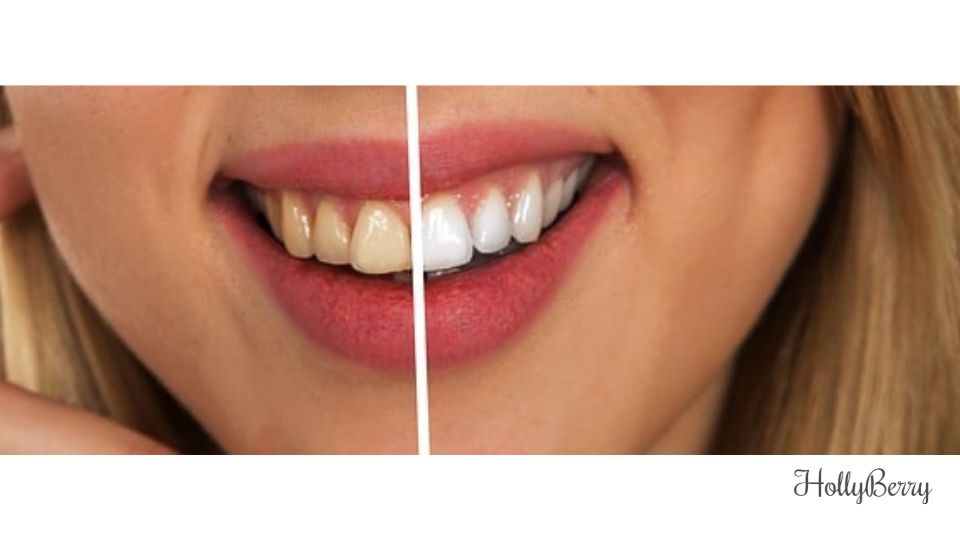
How to whiten your teeth with household products
Share

Many people look for natural ways to whiten their teeth using household products.
While there are methods commonly touted as effective, it's essential to be cautious, as some natural remedies can erode enamel or irritate the gums.
Always consult with a dentist before trying any home remedies. That said, here are a few methods people often try:
Baking Soda and Hydrogen Peroxide
This is one of the most popular home remedies. A paste can be made by mixing a small amount of baking soda with hydrogen peroxide.
Apply it gently on the teeth, brush for 2 minutes, then rinse. However, it's essential not to use this method frequently as it can erode the enamel.
Coconut Oil Pulling
Swish a tablespoon of coconut oil in your mouth for 15-20 minutes. This process is said to remove bacteria and promote healthy gums, in addition to potentially helping whiten teeth.
Activated Charcoal
Activated charcoal is known for its absorption properties. You can use it to brush your teeth occasionally. However, be cautious with this method, as it can be abrasive.
Apple Cider Vinegar (ACV)
Diluted ACV can be used as a mouthwash. It's believed that ACV has teeth-whitening properties.
However, it is acidic and can erode the enamel if used too frequently or not adequately diluted.
Strawberries
Some people mash strawberries, mix them with baking soda, and then apply the mixture to their teeth.
The malic acid in strawberries is thought to help with whitening. However, as with other methods, frequent use could damage the enamel.
Dietary Choices
Consuming crunchy fruits and vegetables, like apples, carrots, and celery, can help to naturally clean teeth.
Similarly, avoiding staining foods and drinks, like coffee, tea, red wine, and soy sauce, can prevent discoloration.
Good Oral Hygiene
While not a "home remedy," the most effective way to keep teeth white is by maintaining excellent oral hygiene.
Brushing, flossing, and regular dental check-ups can go a long way in preserving the natural whiteness of your teeth.
Salt
Sometimes used as a tooth scrub, salt can be a natural alternative to commercial toothpaste. However, it can be abrasive, so it should be used sparingly.
Remember that while these methods can provide some level of whitening, they might not be as effective as professional treatments.
Moreover, incorrect or overuse can cause damage. It's always best to consult with a dentist before attempting any whitening method.
Frequently Asked Questions (FAQs) on Whitening Teeth with Household Products
Is it safe to use baking soda and hydrogen peroxide regularly for teeth whitening?
While this combination can help in whitening teeth, using it too often can erode the enamel. It's recommended to use it sparingly and consult with a dentist.
How often should I do oil pulling with coconut oil?
You can practice oil pulling daily, but it's essential to ensure you're doing it correctly and not swallowing the oil.
Will activated charcoal scratch or damage my teeth?
Activated charcoal can be abrasive. It's crucial to use it gently and not too frequently.
Can apple cider vinegar harm my teeth?
Yes, undiluted ACV is acidic and can erode the enamel. If you choose to rinse with it, ensure it's diluted and rinse your mouth with water afterward.
How does eating crunchy fruits and vegetables help with teeth whitening?
Crunchy fruits and veggies can act as natural toothbrushes, helping to scrub away minor surface stains.
Why should I avoid coffee and wine if I want white teeth?
These beverages contain tannins that can cause staining and discoloration over time.
Can using salt on my teeth cause sensitivity?
Yes, salt can be abrasive and, if used frequently, can lead to tooth sensitivity or wear down enamel.
How long should I wait after eating or drinking staining foods to brush my teeth?
It's generally recommended to wait about 30 minutes after consuming acidic or staining foods and drinks before brushing to avoid pushing the acids or pigments into the teeth.
Are there any risks associated with DIY teeth whitening methods?
Yes, overuse or incorrect use of DIY methods can lead to enamel erosion, gum irritation, and increased tooth sensitivity.
How can I ensure the safety and effectiveness of household teeth whitening products?
It's always best to consult with a dentist before trying any new whitening method. They can provide guidance tailored to your oral health needs. We do sell a safer teeth whitening kit you can find it here.
Always remember, while DIY methods might seem appealing, professional guidance is essential for the safety and health of your teeth.
